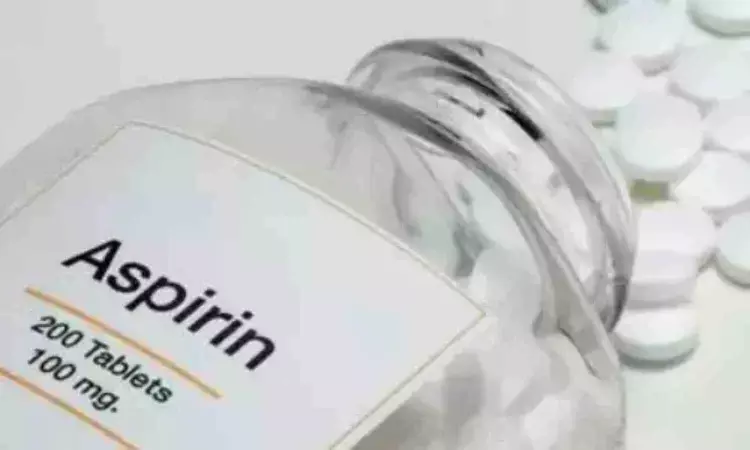- Home
- Medical news & Guidelines
- Anesthesiology
- Cardiology and CTVS
- Critical Care
- Dentistry
- Dermatology
- Diabetes and Endocrinology
- ENT
- Gastroenterology
- Medicine
- Nephrology
- Neurology
- Obstretics-Gynaecology
- Oncology
- Ophthalmology
- Orthopaedics
- Pediatrics-Neonatology
- Psychiatry
- Pulmonology
- Radiology
- Surgery
- Urology
- Laboratory Medicine
- Diet
- Nursing
- Paramedical
- Physiotherapy
- Health news
- Fact Check
- Bone Health Fact Check
- Brain Health Fact Check
- Cancer Related Fact Check
- Child Care Fact Check
- Dental and oral health fact check
- Diabetes and metabolic health fact check
- Diet and Nutrition Fact Check
- Eye and ENT Care Fact Check
- Fitness fact check
- Gut health fact check
- Heart health fact check
- Kidney health fact check
- Medical education fact check
- Men's health fact check
- Respiratory fact check
- Skin and hair care fact check
- Vaccine and Immunization fact check
- Women's health fact check
- AYUSH
- State News
- Andaman and Nicobar Islands
- Andhra Pradesh
- Arunachal Pradesh
- Assam
- Bihar
- Chandigarh
- Chattisgarh
- Dadra and Nagar Haveli
- Daman and Diu
- Delhi
- Goa
- Gujarat
- Haryana
- Himachal Pradesh
- Jammu & Kashmir
- Jharkhand
- Karnataka
- Kerala
- Ladakh
- Lakshadweep
- Madhya Pradesh
- Maharashtra
- Manipur
- Meghalaya
- Mizoram
- Nagaland
- Odisha
- Puducherry
- Punjab
- Rajasthan
- Sikkim
- Tamil Nadu
- Telangana
- Tripura
- Uttar Pradesh
- Uttrakhand
- West Bengal
- Medical Education
- Industry
No difference in ischaemic events if aspirin interrupted or continued among patients with PCI undergoing non-cardiac surgery: ESC 2024

Among patients undergoing non-cardiac surgery more than 1 year after coronary drug-eluting stent (DES) implantation, there was no difference with respect to ischaemic outcomes or major bleeding between perioperative aspirin monotherapy and receiving no antiplatelet therapy, according to late-breaking research presented in a Hot Line session today at ESC Congress 2024.
“Patients who have DES implantation receive antiplatelet therapy, such as aspirin with a P2Y12 inhibitor, after the procedure to reduce the risk of future atherothrombotic events, including myocardial infarction (MI) and stroke. It is not uncommon for patients with DES to then need unrelated surgery, but we are faced with a challenging clinical scenario related to balancing competing thrombotic and bleeding risks. Current guidelines recommend continuing aspirin in patients with DES undergoing non-cardiac surgery; however, supporting evidence is limited. In the ASSURE DES trial, we compared continuing aspirin monotherapy vs. temporarily withholding all antiplatelet therapy around the time of non-cardiac surgery and found no difference in atherothrombotic events, but the low event rate prevents us from making firm conclusions,” explained Principal Investigator, Dr. Jung-Min Ahn from the Asan Medical Center, Seoul, South Korea.
ASSURE DES was an investigator-initiated, open-label randomised controlled trial. The study enrolled patients who had undergone percutaneous coronary intervention with DES more than 1 year earlier and were now undergoing elective non-cardiac surgery. Patients were randomised in a 1:1 ratio to either continue aspirin or to discontinue all antiplatelet agents 5 days before the elective non-cardiac surgery. Antiplatelet therapy was recommended to be resumed no later than 48 hours after surgery, unless contraindicated.
The primary outcome was a composite of death from any cause, MI, stent thrombosis or stroke between 5 days before to 30 days after non-cardiac surgery. Secondary outcomes included the individual components of the primary outcome and major or minor bleeding according to the Thrombolysis in Myocardial Infarction definition.
In total, 926 patients were analysed from 30 participating centres in South Korea, India and Turkey. The mean age was 68.5 years and 24% were women. On average, DES was implanted 6.3 years before non-cardiac surgery and 84% of subjects had second-generation or newer stents. At randomisation, 39% of patients were on aspirin monotherapy, 23% on P2Y12 inhibitor monotherapy and 34% were on dual antiplatelet therapy. Most surgeries were classified as low-to-intermediate risk for both cardiovascular (89%) and bleeding (88%) events.
There was no significant difference in the primary outcome of all-cause mortality, MI, stent thrombosis or stroke between the groups at 30 days, which occurred in 0.6% of patients in the aspirin monotherapy group and 0.9% of patients in the no antiplatelet therapy group (absolute difference −0.2 percentage points; 95% confidence interval −1.3 to 0.9; p>0.99).
Rates of the components of the primary outcome were low: 2 patients died from cardiac causes and 3 had an MI in the aspirin monotherapy group, while 3 patients had an MI and 1 had a stroke in the no antiplatelet therapy group.
Major bleeding rates were similar between the groups: 6.5% in the aspirin monotherapy group and 5.2% in the no antiplatelet therapy group (p=0.39). Minor bleeding was more frequent in the aspirin monotherapy group (14.9% vs. 10.1%; p=0.027).
“Continuing aspirin monotherapy did not reduce ischaemic events, although it was associated with a modest increase in minor bleeding. Event rates were lower than expected, which may reflect the improved safety profile of contemporary DES. This low event rate led to the trial being underpowered and our overall findings should be interpreted with caution. Further research in a large-scale, adequately powered study may now be needed, especially in higher-risk patients and where higher-risk surgeries are involved. In the meantime, it seems that a flexible approach to perioperative antiplatelet management may be considered, without compromising patient safety,” concluded Dr. Ahn.
Dr Kamal Kant Kohli-MBBS, DTCD- a chest specialist with more than 30 years of practice and a flair for writing clinical articles, Dr Kamal Kant Kohli joined Medical Dialogues as a Chief Editor of Medical News. Besides writing articles, as an editor, he proofreads and verifies all the medical content published on Medical Dialogues including those coming from journals, studies,medical conferences,guidelines etc. Email: drkohli@medicaldialogues.in. Contact no. 011-43720751


